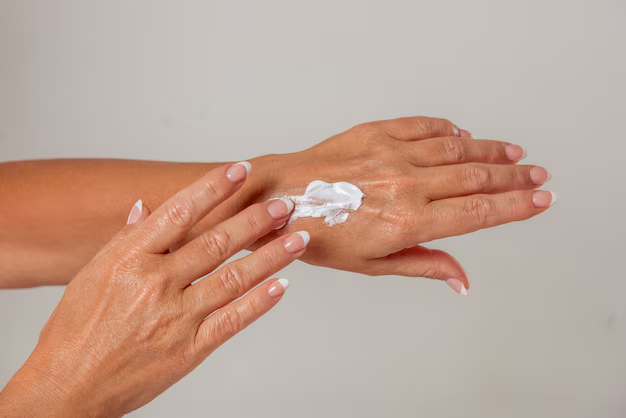Transform Your Skin: Effective Strategies to Alleviate Facial Eczema
Imagine waking up one morning to find that the constant itchiness and redness on your face have magically disappeared. For those struggling with eczema, particularly facial eczema, this might seem like a far-fetched dream. However, achieving clearer, calmer skin is entirely possible with the right knowledge and tools at your disposal. Let's dive into understanding eczema, explore its potential causes, and uncover practical strategies to manage this skin condition effectively.
Understanding Eczema: Your Skin's Cry for Help
Eczema, or atopic dermatitis, is a common skin condition characterized by inflammation, itchiness, and red patches. When it appears on the face, it can be particularly distressing due to its visibility and the discomfort it causes. But what exactly is happening beneath the surface?
What Causes Facial Eczema?
Facial eczema can result from a combination of genetic, environmental, and immune system factors. Here are a few known triggers:
- Genetic Predisposition: If eczema runs in your family, there's a higher chance you might experience it too.
- Environmental Factors: Changes in climate, exposure to allergens, and irritants like harsh soaps or skincare products can trigger eczema flare-ups.
- Weakened Skin Barrier: A compromised skin barrier allows moisture to escape and irritants to enter, leading to inflammation.
- Stress: Emotional stress can exacerbate symptoms, making flare-ups more frequent.
Symptoms to Watch For
Facial eczema often presents itself with the following symptoms:
- Red, inflamed patches
- Itchy, dry skin
- Swelling or thickening of the affected area
- Small bumps that may leak fluid if scratched
Recognizing these symptoms early can help in taking timely action to manage the condition.
Skincare Routine: Your First Line of Defense
A consistent and gentle skincare routine is vital in managing facial eczema. Let's break down an ideal regimen that can help soothe irritation and strengthen the skin barrier.
Gentle Cleansing
Choose mild cleansers that are free from harsh chemicals and fragrances. Opt for cream-based or oil cleansers that preserve your skin's natural oils without stripping away moisture. Remember, hot water can worsen eczema, so always cleanse with lukewarm water.
Moisturizing: Locking in Hydration
Frequent moisturizing is essential, especially right after cleansing when your skin is still damp. Look for moisturizers with ingredients like ceramides, glycerin, or hyaluronic acid, which help in retaining moisture. Apply a thick, emollient-rich cream rather than a lotion for longer-lasting hydration.
Sunscreen: A Vital Step
Protecting your skin from UV rays is crucial, even if you're facing eczema. Opt for mineral-based sunscreens with zinc oxide or titanium dioxide to avoid further irritation.
Patch Testing New Products
Before incorporating any new product into your routine, perform a patch test. Apply a small amount to the inside of your wrist or elbow and wait 24-48 hours to ensure no adverse reactions occur.
Lifestyle Adjustments: Small Changes, Big Impact
Diet and Hydration
While more research is needed to draw a direct connection between diet and eczema, a healthy diet can bolster your immune system and overall wellbeing. Consider these changes:
- Stay Hydrated: Drinking plenty of water keeps your skin hydrated from the inside out.
- Anti-Inflammatory Foods: Incorporate foods rich in omega-3 fatty acids, such as salmon and flaxseeds, to help reduce inflammation.
- Limit Trigger Foods: Some might find relief by reducing dairy, gluten, or artificial additives, though it's crucial to monitor personal reactions.
Stress Management
Managing stress can reduce eczema flare-ups significantly. Explore relaxation techniques such as mindfulness, yoga, or meditation. Even simple activities like taking walks in nature or reading a book can provide a mental break.
Specialized Treatments: When More Is Needed
Over-the-counter solutions might offer relief, but for persistent or severe cases, seeking specialized treatment under the guidance of a healthcare professional is often necessary.
Topical Treatments
Topical steroids or calcineurin inhibitors can reduce inflammation and itching. However, these should be used under medical supervision to avoid side effects from prolonged use.
Phototherapy
Exposure to ultraviolet light under controlled conditions can help in managing eczema. Known as phototherapy, this treatment reduces itchiness and inflammation.
Consult a Dermatologist
If you're consistently battling eczema, consulting a dermatologist can provide a tailored treatment plan. They can help identify specific triggers and suggest advanced therapies if necessary.
Support and Self-Care: Building a Positive Outlook
Living with eczema can be challenging, but maintaining a positive mindset and connecting with others who understand your journey can offer emotional relief.
Join Support Groups
Participating in eczema support groups can provide a platform to share experiences, tips, and encouragement. Knowing that you're not alone in this journey can be incredibly empowering.
Practice Patience and Promptness
Improvements might be gradual, so practice patience with yourself and your treatments. However, be prompt in addressing new symptoms or flare-ups to minimize severity.
Self-care Rituals
It's essential to integrate self-care into your routine to enhance overall wellbeing. Taking time to enjoy activities you love can help reduce stress and improve your outlook.
Wrapping It All Together: Your Path to Calmer Skin
While eczema on the face poses a unique set of challenges, it's possible to navigate this condition successfully with determination and the right strategies. By understanding triggers, establishing a tailored skincare routine, making lifestyle adjustments, exploring specialized treatments, and fostering a supportive community, you can significantly improve your skin health and quality of life.
Here's a quick summary to guide your journey:
🌟 Key Takeaways for Managing Facial Eczema 🌟
- Skincare Staple: Embrace a gentle, moisturizing routine. 🧴
- Diet Duty: Stay hydrated and explore anti-inflammatory foods. 🥦
- Mindfulness Mode: Manage stress with relaxation techniques. 🧘♀️
- Seek Support: Connect with others through support groups. 👥
- Stay Informed: Consult professionals for personalized care. 🩺
Remember, each small step you take brings you closer to healthier, happier skin.

